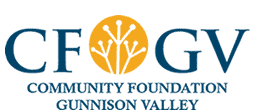Who’s Right?
 The internet makes it easy to think we’re “right”. Because whoever it is out there writing algorithms keeps us bombarded with messages that sound like everyone agrees with us. That must make us “right”, yes? Of course not.
The internet makes it easy to think we’re “right”. Because whoever it is out there writing algorithms keeps us bombarded with messages that sound like everyone agrees with us. That must make us “right”, yes? Of course not.
If we’re all “right” and those who think differently are also “right”, who really is? Maybe no one. Maybe there is a middle ground. How do we find that? My guess is that listening plays a big part in finding that middle ground.
The Foundation just finished this year’s round of reviewing and awarding community grants. A review committee reads the proposals and rates them. (Lovely that the proposals are submitted online these days.) The important part in this process, though, happens when the committee comes together for a day of conversation about the proposals – that’s when truly focused listening happens. It’s all about the culture in the room and the willingness to share opinions. It’s also all about the words used. People who don’t know one another feel confident and safe enough to say what they think as well as being open to hearing differing opinions. It’s like a well-oiled automotive engine – quietly working to get you where you’re going. The Foundation provides the oil and the reviewers provide the power.
Every proposal (34 of them this year) has its strong points – just some have more than others. Through the process of attentive review and then conversation – speaking thoughtfully and listening carefully – the reviewers eventually submit final ratings. The software produces an aggregated and ranked list of the organizations and their scores. An audible sigh fills the room as the reviewers see their work projected on a screen. While the committee reviews the rankings, the Foundation asks these questions, “Does this list reflect your conversation? And is this what you expected to see?” It’s amazing . . . and it works every time – because the reviewers are honest with themselves and each other. There is agreement and no surprises.
So, having each entered the room with their own opinions, who is right? No one person is “right” – it’s about the collective of the committee.
Larry Meredith wrote a piece for the Foundation years ago he called “Words Matter”. It’s true – the words we choose to use really do matter. The words in each proposal influence opinions, as do the words used by the reviewers in their conversations.
What does this have to do with our everyday lives? Mean what you say – and let’s all choose our words carefully. Right now, I’m especially put off by the name-calling I hear on the news. And the feeling that no one’s really listening. Or that politicians, journalists and commentators alike really don’t take care to choose their words wisely.
To have a meaningful conversation, the person we’re speaking with has to understand the context and meaning of our words. If we don’t know what the other means, and they don’t know what we mean, then there is no true communication. That doesn’t mean we have to tell everyone how we’re really feeling when someone casually says, “How’re you doin”? It’s OK to say, “Fine” – even if we’re having a bad day. It does mean that in an important conversation, we take the time to define our words or ask someone else to clarify their words so that real communication can take place. We’ll all have the opportunity this summer to have meaningful conversations – about housing, health and wellness, considerate use of our recreational lands – the topics are many. Let’s choose our words carefully and listen to one another as we move toward important solutions to community issues. As someone once said, “Let the words we use today be spoken in good taste, because tomorrow we may have to eat them.”
Donors: We have some incredible nonprofits in this Valley – heap love on them with your time, talent and treasure.
Nonprofits: Ditto to the above – only heap that love on your donors, volunteers and staff members.
Community: Love this glorious Valley and honor it with meaningful conversations.
